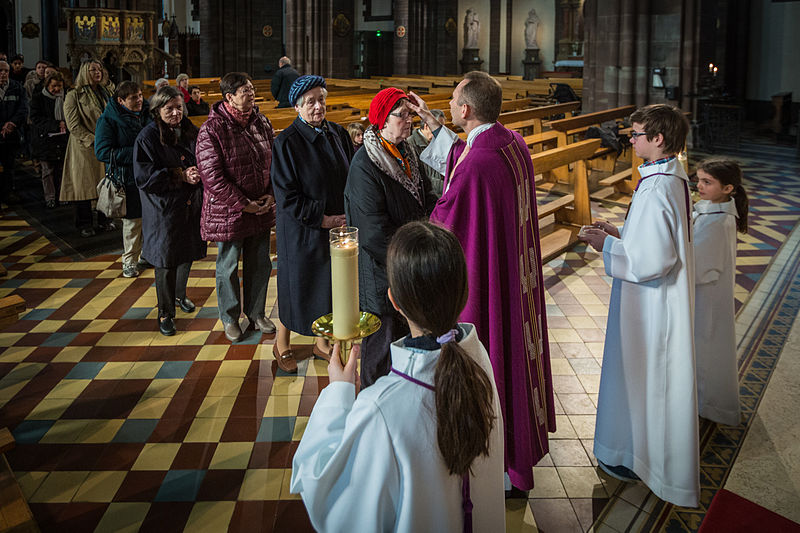2012年に映画「ハンガー・ゲーム」の第1作が公開されたとき、娘のベサニーは11歳だった。学校で「ハンガー・ゲーム」の評判を聞いた彼女は、家で活発なキャンペーン活動を開始した。その映画をひどく見たがったのだが、私はそれを見せたくないと言った。
[toggle]When the first Hunger Games movie was released in 2012, my daughter Bethany was 11 years old. Influenced by a determined lobby group of pro-Hunger Games preteens at her school, she mounted a vigorous campaign at home. She very badly wanted to see the movie; I was equally committed to her not seeing the movie. [/toggle]ついに私は完全にキレて、「どうして子ども同士が殺し合うことを娯楽として描く映画を見たいのよ」と彼女に問いただした。
[toggle]At one point, completely exasperated, I demanded of her, “Why in the world would you want to see a movie that portrays the death of children as entertainment?” [/toggle]その答えは驚くべきものだった。「ママ、私、思うんだけど、物語で本当に重要なことは、賭けるものが大きいっていうことをママは知らなくちゃいけないわ。それは生きるか死ぬかよ」
[toggle]Her answer surprised me. “I think, Mom,” she said thoughtfully, “that for a story to really matter, you have to know that the stakes are high. You have to realize that it’s life or death.” [/toggle]この映画についての議論でどちらが勝ったかはさておき、ちょうどその1年後、娘が述べた、物語に対するこの洞察を思い出すことになった。初めて「灰の水曜日」に参加した直後のことだ。
[toggle]I won’t tell you who won the movie debate. But I found myself remembering Beth’s insight into stories almost exactly a year ago, after I attended my first Ash Wednesday service. [/toggle]伝統的なリズム
[toggle]Ancient Rhythms[/toggle]「教会のカレンダー」といえば、教会のイベントと誕生日のことを意味するような福音派の環境の中で、私と夫のマークは信仰を持った。もちろんクリスマスやイースターは祝うが、その程度のことだ。アドベントの経験といえば、チョコレート入りのアドベント・カレンダーをドラッグストアで買うぐらい。ペンテコステは、通りの向こうにあるカリスマ系の教会のもの。レントは、カトリック信者のために予定されている、神秘的と言うよりもむしろ古めかしい習慣だった。
[toggle]My husband, Mark, and I both came to faith in the sort of evangelical environment where “church calendar” means a list of congregational events and birthdays. We celebrated Christmas, of course, and Easter too— but that was about it. My experience with Advent was limited to chocolate-laden drugstore calendars. Pentecost was for the charismatics down the street. And Lent was a mysterious, rather gothic observance reserved for the Catholics. [/toggle]大人になって初めて、教会の伝統的なリズムに関心を持つようになった。教会儀式(典礼)の伝統の中でイエスに従う人たちと友だちになり、特定の儀式と季節を守ることが彼らにいのちを与えていることを知ったのだ。予定や締め切りがどんなに容赦なく迫っていたとしても、彼らは異なるリズムに生きているようだった。それは、彼ら自身の生活に根づいた、整然と秩序立った物語だ。
[toggle]It wasn’t until we were well into adulthood that we became more curious about the ancient rhythms of the church. We developed some friendships with folks who were following Jesus in liturgical traditions, and we could see that their observance of certain rituals and seasons was bringing them life. No matter how relentlessly the world of clocks, crises, day-timers, and deadlines marched on around them, they seemed connected to a different rhythm—a more cosmic story that contextualized the chapters in their own lives. [/toggle]私たちはその中へ入りたいと思った。
[toggle]We wanted in. [/toggle]そうして、ゆっくりと私たちの生活をこの別のリズムに調整していった。アドベント、クリスマス、エピファニー、レント、受難週、イースター、主の昇天、ペンテコステ、そして「年間」に入り、アドベントに戻っていく。これは、私たちのために時間を刻み続けてくれる。私たちは、こうした暦の一部だけを守る教会に通っているが、教会暦が感情と心を整える時はいつでも、自分が神の物語に少しずつ深く入り込んでいることに気づく。
[toggle]So, slowly, we began to tune our own lives to this alternate rhythm: Advent, Christmas, Epiphany, Lent, Passiontide, Easter, Ascension, Pentecost, and back through “Ordinary Time” to Advent again. This way of marking time continues to evolve for us—we still attend a church that observes only some of these seasons—but whenever we allow the liturgical calendar to calibrate our hearts and minds, we find ourselves plunged a little deeper into God’s story. [/toggle]初めての灰の水曜日
[toggle]My First Ash Wednesday[/toggle]私たちは数年前からレントの40日間(と復活の日曜日)を守り、(コーヒーやソーダ、甘いものを断つという)マイルドだけど決定的な制限を受け入れてきた。自らを不安定にして、創造主ではなく被造物の慰めに頼る小さな中毒性のある方法を明らかにするために。この季節における私たちの犠牲など、とても小さくて笑ってしまうほどなのだが、私たちの父はこんなささやかな献げ物を恵みへの入り口にしてくださる。あらゆる空腹の苦しみやカフェインへの渇望が、聖なるきっかけとなるのだ。祈り、信頼、放棄。この季節全体が期待によって胸躍るものとなっていく。復活祭が来る!
[toggle]We’ve observed the 40-day (plus Sundays) season of Lent for a few years now, embracing various mild-yet-disruptive restrictions (giving up coffee or soda or sweets) in order to destabilize ourselves and expose the toxic little ways we rely on creature comforts instead of the Creator. Our sacrifices in this season are so minuscule as to be laughable, except that our Father seems only too willing to use our tiny offerings as portals for his grace. Every hunger pang or caffeine craving becomes a holy prompt—pray, trust, surrender. The whole season becomes a bit delicious with anticipation: Easter is coming! [/toggle]しかし、レントの賜物(たまもの)への熱情が花開くまでは、マークと私は「灰の水曜日」を守ることについてあまりにも知らなさすぎた。レントは死を連想させるものと疑心暗鬼なままだったら、灰の水曜日はあらゆる祝日の中で最も暗い日のように思われた。灰の水曜日というのはレントの最初の日で、教会によっては悔い改めの典礼と、額に灰の十字をつけてもらう儀式を行う。
それでも昨年、灰の水曜日を守っている地元の教会を検索してみた。レントを守るなら、そのオープニング・セレモニーにも出るべきだと考えたのだ。
[toggle]Still, for all our blossoming enthusiasm for the gifts of the Lenten season, Mark and I haven’t known much about the observance of Ash Wednesday. If we had once distrusted Lent as a little macabre, Ash Wednesday—the first day of Lent, which some churches observe with a liturgy of penitence and a ritual of ashen crosses—seemed to be the darkest of all possible holidays. And yet, last year, we found ourselves searching web listings for a church in our area with an Ash Wednesday service. I guess we figured that if we were going to do Lent, we might as well show up for the opening ceremonies. [/toggle]隣町で夕拝をしている教会についてネットで読み、暗い雨の中、その教会に向かった。ところが道に迷ってしまい、もう家に帰ってホッケーの試合でも見ようかと考えたのだが、どうしたわけか私たちは辛抱して、雨に濡れて不機嫌になりながらも、その礼拝に20分も遅刻してもぐり込んだ。
[toggle]We read about a church offering an evening service in a neighboring town and set about trying to find it on a night both dark and rainy. We got lost, we argued, we considered just heading home and watching the hockey game instead. But, somehow, we managed to persevere, and, wet and grumpy, we snuck into the service 20 minutes late. [/toggle]
(写真:Photo Claude TRUONG-NGOC)
数曲の賛美歌を歌い、聖書の数節が読まれた。そして前に進み出て、聖職者から額に灰の十字を記してもらうという、期待していた瞬間がやって来た。
[toggle]We sang a few worship songs. Some Scripture was read. And then came the moment when we were expected to go to the front and allow the minister to place a cross of ashes on our foreheads. [/toggle]その灰にどういう由来があるのかは知らない。灰の水曜日を守る教会は、前年の「パーム・サンデー」の枝を1年間取っておき、それを燃やして灰にするのだそうだ。このような実践は美しく、詩的で、深く、神秘的に思える。私たちにとって初めての灰の水曜日の灰にそのような背景があればよいのだが、それは分からない。
[toggle]I don’t know where the ashes came from. I’ve heard that churches who observe Ash Wednesday will often save and then burn the branches from the previous year’s Palm Sunday—a practice I find beautifully poetic and deeply mysterious. I hoped my first Ash Wednesday ashes had that sort of back story, but I don’t know. [/toggle]分かったのは、私たちが前に進み出て初めて会った男性(彼は、私のように牧会者になると誓った者だ)が、私の額に親指を当て、私の目を見て語ったことだ。「あなたは塵(ちり)であり、塵に帰るべきものであることを覚えなさい」
[toggle]What I do know is that we went forward, and a man I’d never met before—but who had taken vows to shepherd the likes of me—put his thumb to my forehead, looked me in the eyes, and told me:“Remember that you are dust, and to dust you shall return.” [/toggle]私には、典礼として適切な応答の仕方が分からなかった。「神に感謝」か「あなたと共に」か、それとも「アーメン」か。塵と宣言されて、何と言えばいいのだろうか。少しうなずいたと思う。「オーケー」とつぶやいたかもしれない。
[toggle]I had no idea what the proper liturgical response should be. Thanks be to God? And also with you? Amen? What does one say to the proclamation that one is dust? I think I just nodded. I might have mumbled, “Okay.” [/toggle]典礼は終わった。そして、ホッケーの第3ピリオドには間に合った。帰宅したわが家の子どもたちは、額に十字を残した私たちを見て、畏敬と残念さの混ざった困惑顔で笑っていた。
[toggle]The service wrapped up; there was still time to watch the third period of the hockey game. We left our smudgy crosses on our foreheads, and when our teenagers came home and saw us, we chuckled at their bemused mix of awe and chagrin. [/toggle]「いったいどうして自分が塵だと告げられる礼拝に行くの」と娘は尋ねた。
[toggle] “Why on earth would you go to a service just to be told you are dust?” demanded my daughter. [/toggle]娘の質問の答えに気づいたのは、いつの間にか眠りこけて、灰は消えたものの、まだ肌が十字の形にチクチクしていた時だった。「物語で本当に重要なことは、賭けるものが大きいっていうことをママは知らなくちゃいけないわ。それは生きるか死ぬかよ」
[toggle]It was only later, drifting off to sleep, my ashes washed off but my skin still tingling in a cruciform pattern, that I realized the answer to my daughter’s question. For a story to really matter, you have to know that the stakes are high. You have to realize itʼs life or death. [/toggle]
(写真:Oxh973)
私たちは塵である
[toggle]We Are But Dust[/toggle]人間の物語、私の物語は、もちろん創世記から始まる。神はほんの一握りの塵を取り、人の形にし、鼻に息を吹き込むことでいのちを与えた(創2:7)。その次の章では、最初の人間は、すでに自分がどこから来たのかを忘れてクーデターを起こす。神はアダムとエバに「解放への欲望は、真の死への願望だ」と説明する。神から自らを切り離すことは、いのちの息から自らを切り離すことだ。「あなたは塵だから、塵に帰る」(創3:19)と神は思い起こさせる。
[toggle]The human story—my story—begins, of course, in Genesis, when God takes a handful of dust, shapes t into a man, and brings him to life by breathing into his nostrils (Gen. 2:7). One chapter later, the first humans have already forgotten where they came from and attempted a coup. God explains to Adam and Eve that their desire for emancipation is really a death wish. Cutting themselves off from him is cutting themselves off from the breath of life. “For dust you are,” he reminds them, “and to dust you will return” (Gen. 3:19). [/toggle]物語はそこから展開するが、人間の側のストーリーはほとんど壊れている。人にいのちを取り戻してくださる方からますます遠ざかる人間のその後の軌道は、戦争と反抗の不毛な繰り返しだ。
[toggle]The story unfolds from there, and from the human side of the plotline it’s pretty bleak—a dusty litany of wars and rebellions as humans orbit further and further away from the One who can breathe them back into life. [/toggle]しかし栄光の王は、どんでん返しの王でもある。そして王は、イエスの人性において、私たちと同じ塵によって生まれる。毎年、アドベント、クリスマス、エピファニー、レント、聖金曜日、イースター、ペンテコステを祝うことで私たちは、イエスの受肉、忍耐、犠牲、死に対する勝利、そして今もイエスが私たちに与えてくださるいのちを思い起こす。
[toggle]But the king of glory is also king of the plot twist, and he comes—made of the same dust as us—in the person of Jesus. Every year in our celebrations of Advent, Christmas, Epiphany, Lent, Good Friday, Easter, and Pentecost, we remember his coming, his enduring, his sacrifice, his victory over death, and the life he offers to us now. [/toggle]私はつい最近まで見逃していたが、ヨハネ福音書はイエスの物語のある瞬間を捉えている。イエスが死から復活し、宇宙に再び秩序がもたられることを目の当たりにした弟子たちは、その光り輝く姿によって喜びと恐れに満たされる。イエスが声高に叫ぶまでは、彼らは恐怖のあまり自分たちが塵に返る(死ぬ)と感じていたに違いない。「あなたがたに平和があるように。父が私をお遣わしになったように、私もあなたがたを遣わす」(ヨハネ20:21)
[toggle]The Gospel of John captures a moment in Jesus’ story that, until very recently, I somehow missed. Jesus has risen from the dead, and his disciples, confronted with the reordering of the cosmos, are filled with equal parts terror and joy in the radiant presence of their friend. I imagine they must have felt like their fear could melt them down to ash, until Jesus exclaims: “Peace be with you! As the Father has sent me, I am sending you” (John 20:21). [/toggle]ヨハネは語る。「そう言ってから、彼らに息を吹きかけて言われた。『聖霊を受けなさい』」(22節)
[toggle] ‘And with that,” John tells us, “he breathed on them and said, ‘Receive the Holy Spirit.’” (v. 22). [/toggle]神の息がなければ、私たちは塵にすぎない。レントの始まりである灰の水曜日は、私たちの物語において、生きるか死ぬかの賭けだったことを思い起こさせ、私たちを準備させる。ユージン・ピーターソンの言葉でいえば、「この文化が知らない死のために、復活のダンスを踊る空間を作る」のだ。
神に感謝。
[toggle]Without the breath of God, we are but dust. On the brink of Lent, Ash Wednesday helps us remember the life and death stakes in our own stories, preparing us, in the words of Eugene Peterson, “for a kind of death that the culture knows nothing about . . . making room for the dance of resurrection.”Thanks be to God. [/toggle]
執筆:キャロリン・アーレンズ
本記事は「クリスチャニティー・トゥデイ」(米国)より翻訳、転載しました。翻訳にあたって、多少の省略をしています。
出典URL:https://www.christianitytoday.com/women/2017/march/i-was-ash-wednesday-rookie.html
